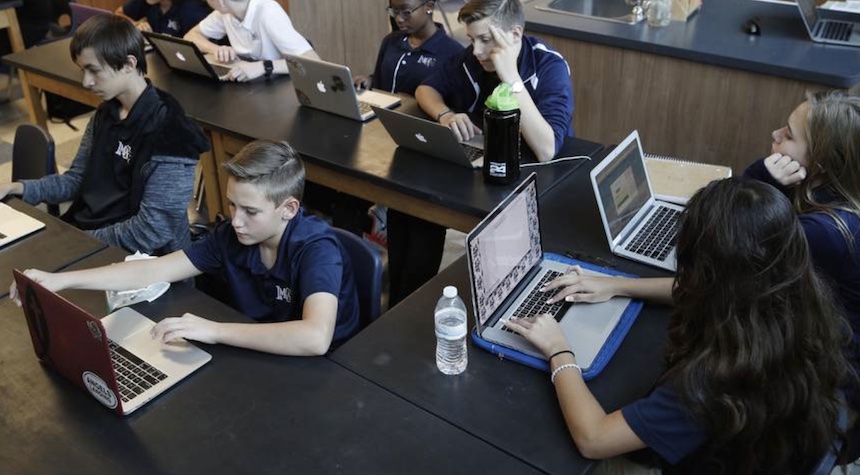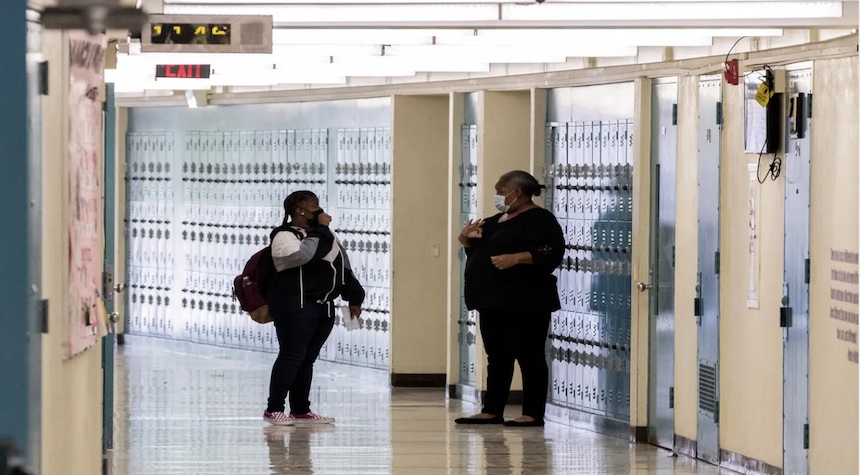We will continue to see education evolve in 2023-2024, and remote learning is expected to play a more important role. We learned this during the COVID-19 pandemic and with the possibility of new mutations. It is important to continue offering remote education.
Virtual learning has many advantages, but it also comes with some drawbacks. One of these is the increased risk of cyberattacks. The Biden administration has not done enough to make cybersecurity a priority, despite their claims. In the first half of 2023, 48 school districts were hit by ransomware, which is three more than all of 2022.
Bad actors have accessed sensitive information such as medical records, psychological evaluations, and sexual assault reports. As the federal government has failed to improve the security situation, it is important that schools, parents, and students work together to create a safe learning environment in 2023-2024.
Before COVID-19 was released, cybercriminals had already made the educational system a target. In recent years, cyberattacks have affected K-12 schools as well as colleges.

These hacks not only compromise the privacy of individuals but can also cause disruption in the educational process. Schools must therefore take proactive measures in order to secure their networks.
Institutions can help to address this issue by increasing the cyber training of both students and staff. It is obvious that integrating this knowledge into the curriculum at an earlier age, when elementary school students are using online devices more than ever before, will increase safety.
Teachers and administrative staff must also be given additional training in order to keep up with the latest cyber threats and to learn the best practices for preventing and responding to hacks. By empowering the American education community, we can create a culture that is strong in cybersecurity.
It is important to increase investment in cybersecurity protocols and systems. This includes updating and patching software, implementing secure firewalls and detection systems, as well as implementing stronger password policies. It is important to perform regular security audits in order to identify any vulnerabilities before hackers can exploit them.
Parents must protect their children from cyber threats, as education begins at home. Parents must educate their children on online safety as students use more personal devices to learn remotely. Here are some steps that parents can take to ensure their children’s safety online.

Set boundaries with your children: You must set rules about online time, and the activities that are permitted. It is important to teach children about the dangers of sharing personal information online.
Installing parental controls on your device will allow you to monitor and limit access to certain websites and apps.
Talk to your kids about email phishing, cyberbullying, and online predators. Encourage your children to report any suspicious online behavior.
Secure devices: Make sure all devices that are used for remote education have the latest security patches installed and strong passwords. Two-factor authentication is a great way to increase security. Teach your children about it.
Students should also play a greater role in protecting themselves against cyber-attacks. Today, digital literacy is just as important as traditional reading and writing. Students must take proactive steps to protect themselves online. Here are some measures students can take to protect themselves online:
Improve your password hygiene. It is important to create strong passwords and use password managers to track them.

Beware of phishing: Do not immediately trust emails or links that you do not know. Verify the identity of a message’s sender before clicking on links or providing personal information.
Update your software: Update all your programs and operating systems regularly to fix vulnerabilities that hackers may exploit.
Set privacy settings to limit the data that is available to the public. Never share any information that can be used against your interests.
Report suspicious activity. If you come across any cyberbullying or harassment or other online threats report them immediately to your parents or guardians or a trusted authority figure at school. It is important to report these incidents in order to stop them and protect others.
The 2023-2024 academic year will bring opportunities for growth and learning, but also challenges, such as preventing hacking, both at home and abroad. To protect the future of education, and ensure a safe environment for learning, the entire learning ecosystem must work together. Parents must play a greater role in protecting and educating their children online and students need to become responsible digital citizens. We can all help each other navigate the digital world safely by taking proactive measures.


